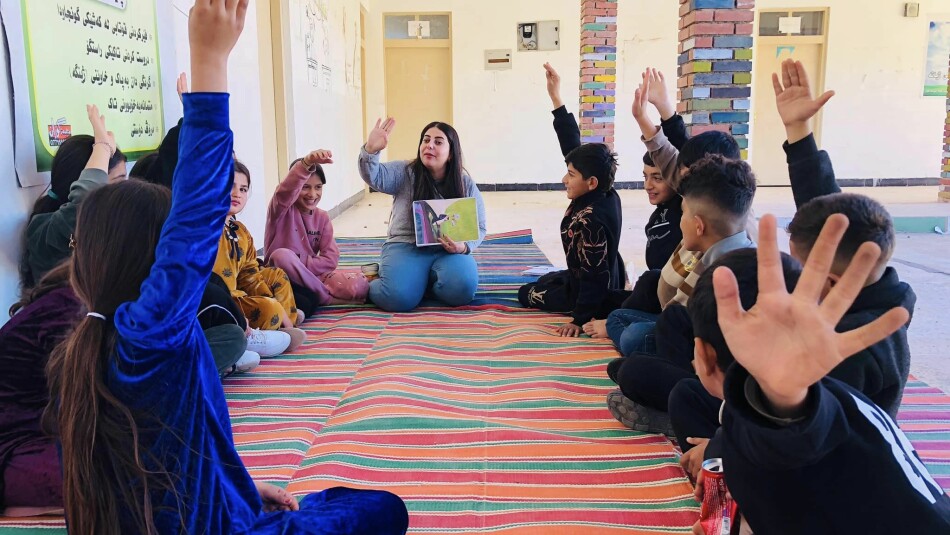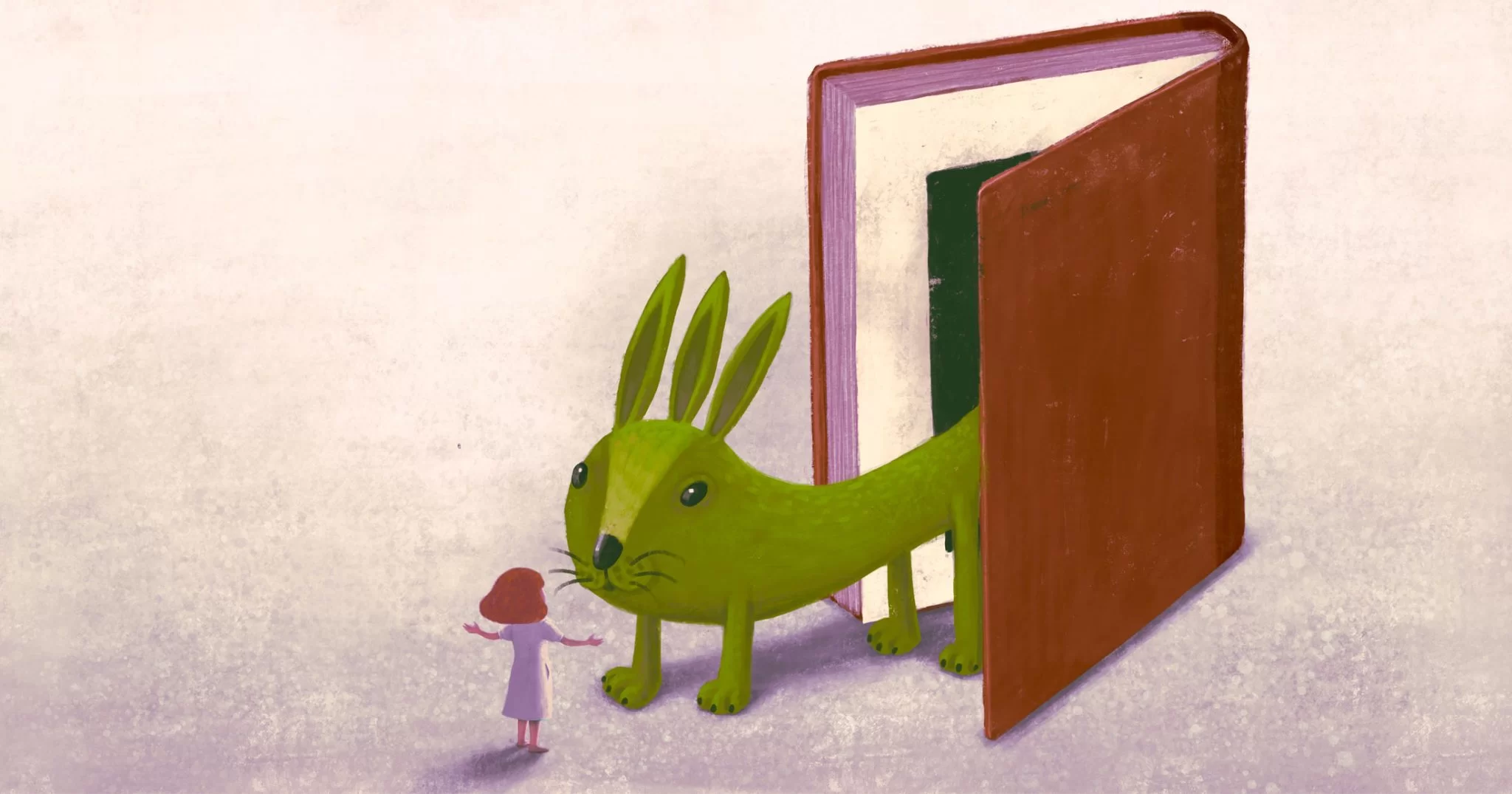
Marsh Heritage is the name of a village public school in the Jibayish district of Dhi Qar Governorate. Of the total of 150 students in this school, 50 of them were forced to drop out due to “the effects of climate change,” according to the Jibayish Ecotourism Organization in Iraq.
Iraq is ranked 61st out of 163 countries on UNICEF’s Children’s Climate Risk Index, and the United Nations Global Environment Outlook 6 (GEO-6) ranks it the fifth most vulnerable country to water and food shortages and extreme temperatures, says a report by the UNICEF called (Climate Landscape Analysis for Children and Young People in Iraq) published last August.
These rankings reflect the significant climate change risks faced by children in Iraq, the report adds.
Raad Al-Asadi, head of the Jibayish Ecotourism Organization in Iraq, told KirkukNow, “The issue of the effects of climate change on children is a very important issue, because we see its impact. For example, the effects of climate change have become more apparent in the marsh areas in Iraq over the years.”
“Over the past three years, the marshes have been exposed to drought, as a result of which a large number of families have abandoned their areas,” he added.
"When families migrate, their children migrate with them and are forced to move to another school. In such circumstances, some of the children drop out of school," citing what happened at the Marsh Heritage School in the Jibayish District.
“There are other families who do not transfer their children to other schools after they migrate... In contrast, the schools in the areas to which they migrated are so overcrowded with students that it is not possible for teachers to perform their tasks perfectly, which leads to a decline in the level of some students, so families often force their children to drop out of school or leave on their own.”
There are other families who do not transfer their children to other schools after they migrate
In this era, the term “green education” refers to linking environmental awareness regarding climate change to school curricula.
“Green Education” is a comprehensive curriculum that provides students with learning experience and real-world requirements beyond the traditional curriculum. Students can investigate environmental issues, solve dilemmas and move towards improving the environment.
This topic was part of a dialogue held on Friday, December 8, in the Iraqi pavilion at the Climate Change Summit in Dubai COP28.

A photo resembls Green Education forchildren. Image from unsplash.com
A number of experts and a representative of UNICEF spoke about the challenges facing the educational process in Iraq and the impact of climate change on children, in a discussion session entitled (Climate change in the education sector).
Dr. Maha Al-Rawi, Director of the Human Development Department at the Iraqi Ministry of Planning, who was among the participants in the session, told KirkukNow, “With regard to the issue of children, we as the Ministry of Planning kicked off the national strategy for developing children’s capabilities. This strategy works to build and develop children’s capabilities so that they can eventually become healthy individuals, but in terms of changing the curriculum and including climate change in it, we haven't done that yet."
“School curricula must respond to the needs of society, including the issue of awareness about climate change, children’s behavior and other topics. Therefore, we ask our colleagues in the Ministry of Education to work to include the issue of climate change in the school curricula,” she added.
School curricula must respond to the needs of society, including the issue of awareness about climate change
The failure to implement the green education system in Iraq and the inclusion of the topic of educating children about the dangers of climate change prompted some local organizations, in cooperation with international organizations, to work on including the strategy of this educational method in the country.
Fida International is one of the organizations working on this issue through a project called “Creative Education and Creating a Safe Environment for Iraqi Children and Youth,” part of which includes linking educational topics to climate change challenges.
Fida International is a Finnish faith-based organisation working in global missions, community development and humanitarian aid in 50 countries “to bring hope and a better future to all nations – especially to children living in poverty.”
Saadia Hassoun, head of Together for the Protection of Humanity and the Environment - an organization participating in the project - told KirkukNow, that in 2020, they launched this project with Fida International and have trained 1,500 teachers to implement the strategy, in more than 27 y schools in Baghdad and Mosul.
“The teachers who were trained in turn become trainers within the schools so that they can implement the strategy.”
In response to a question about how to work on the strategy and its content, Hassoun said, “We have formulated a detailed road map for teaching staff so that they can integrate awareness about the effects of climate change into academic subjects.”
“The map is based on four main principles and teaches the teacher how to implement them. The teacher also learns to show live examples. For example, how to show children that big numbers are not just numbers, but may be the numbers of victims of a natural disaster that occurred as a result of climate change.”
The "Green Education" strategy is one of the hot topics at the Climate Change Summit, and many organizations are holding special events in this regard to encourage countries to implement it.
The strategy, according to the definition of UNESCO, green education is based on four foundations: greening schools by expanding green spaces, greening school curricula by including topics related to climate change, greening teachers by training them on how to teach topics related to climate change, and greening society by raising awareness about climate change and working to reduce its effects.
"We must not wait for the government to make changes in the school curriculum. Rather, we must link the school curriculum to the topic of climate change by implementing the strategy,” Hassoun added.
“Our goal is to spread this project in all Iraqi schools with the aim of reducing the effects of climate change in our country and educating children about it."
This story was produced as part of the 2023 Climate Change Media Partnership, a journalism fellowship organized by Internews' Earth Journalism Network and the Stanley Center for Peace and Security.